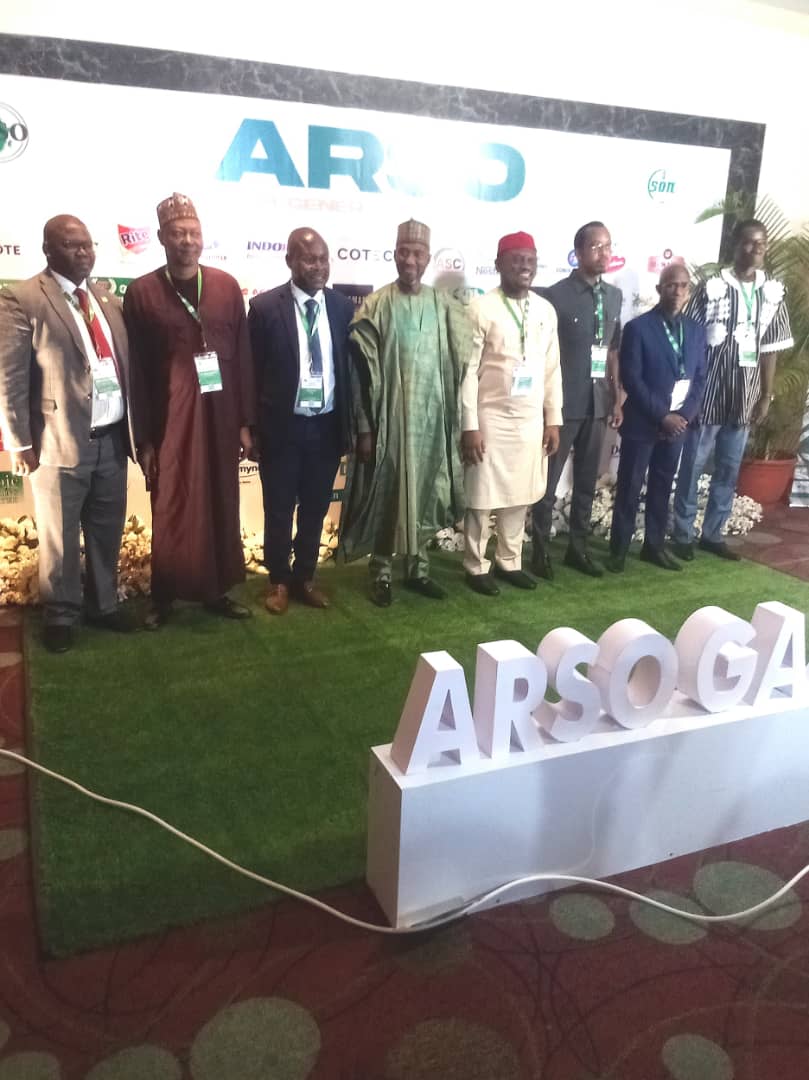By Felix Khanoba
The Federal Government has urged for greater synergy and collaboration on standardisation among African nations to bolster the African Continental Free Trade Area (AfCFTA) Agreement.
This call was made by the Minister of Industry, Trade, and Investment, Dr. Doris Uzoka-Anite, during the 30th African Organization for Standardisation (ARSO) General Assembly in Abuja on Wednesday.
The event, themed “Educate an African Fit for the 21st Century – Building a Quality Culture – One Market, One Standard,” highlighted the critical role of standardisation in sustainable development, innovation, and export-oriented manufacturing.
Dr. Uzoka-Anite emphasized that unified standardisation efforts are essential for the effective implementation of the AfCFTA Agreement.
She said, “The current standardisation activities at national, regional, and continental levels require robust synergy and collaboration among African nations and ARSO member states to enhance a Common Regulatory Framework, especially in the context of the TBT annex 6, article 5.”
The Minister, represented by the Permanent Secretary of the Ministry, Amb. Nura Rimi, highlighted the recommendations for developing and implementing standards, technical regulations, and conformity assessment procedures to boost intra-African trade, particularly in value-added production and commerce.
Dr. Uzoka-Anite noted that 35 out of the 43 African nations that ratified the AfCFTA Agreement, including ARSO members Kenya, Rwanda, Cameroon, Ghana, Tanzania, Mauritius, Tunisia, and Egypt, stand to benefit significantly from strategies aimed at reducing tariffs and non-tariff barriers.
She cited a McKinsey report, indicating that AfCFTA could stimulate intra-African trade by up to $35 billion per year, boost agricultural and industrial exports by $4 billion (7%) and $21 billion (5%) respectively, and increase GDP from $1.7 trillion in 2010 to $2.6 trillion in 2020, potentially lifting millions out of poverty.
The Minister also reiterated the Ministry’s commitment to revitalising the Nigerian economy through innovative strategies as part of President Bola Tinubu’s Renewed Hope Agenda, stating, “Standards set good international best practices in every sector of life, promoting productivity, trade, and ensuring predictability, transparency, and openness.”
The Director General of the Standards Organisation of Nigeria (SON), Dr. Ifeanyi Okeke, echoed these sentiments, emphasizing the importance of standardisation in fostering a quality culture and facilitating a unified market.
He said the Organization is also committed to the current Nigerian administration, under the banner of “Renewed Hope”, which has laid out a comprehensive educational roadmap aimed at transforming the educational sector.
“At the Standards Organisation of Nigeria, we are committed to integrating this roadmap with our collective goal of fostering a quality culture and transfer of knowledge through standardization – a significant progress in achieving the Sustainable Development Goals that will ultimately capture “no-African-child-is-left-behind effort,” he said.
The SON boss harped on the need to embrace standardization, saying it fosters a quality culture that permeates every aspect of our lives.
” It ensures that our products and services meet international benchmarks, enhance competitiveness and facilitate trade. It is about creating a unified market where quality is the norm, not the exception. This vision of ‘One Market, One Standard’ is integral to achieving the aspirations of the African Continental Free Trade Area (AfCFTA).”.
Dr. Hermogene Nsengimana, ARSO Secretary General, announced that ARSO had approved 250 new harmonised standards since the event’s commencement in Abuja, bringing the total to over 2000.
However, he expressed concerns about the implementation of these standards across the continent.



